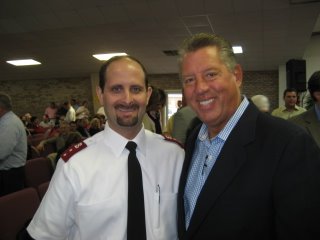A Family That Prays (and does a whole bunch of other stuff) Together Stays Together
A family that prays together stays together.
That is true as long as the many other elements of communal life are also shared.
A family that plays, works, fights, eats, gives, receives, laughs, cries, thinks, shares, serves, suffers, and celebrates together....... stays together.
It is also important for a family to be able to stay together, even when they are apart.
As we experience years of life, we will discover more and more occasions and situations when a family needs to be apart. For example, my twin brother, Ronnie, and I shared a womb, a crib, a bottle, parents, a bedroom, a classroom, toys, clothes, and at times, even a toilet. We could do that; we are twins. But using the toilet quickly became something that we needed to do apart.
In the Jewish world of Jesus, community was always a central concept. The individual was always seen as a part of the community, and the community was always thought of as an individual. The entire community, past, present, and future were considered as being together, because God’s covenant was made with all people of all generations past, present, and future (Deut. 29:15). –Marvin Wilson, Our Father Abraham, page 187.
God is an all inclusive God. He is a family God. God did not call Jacob to be His person; He called Israel to be His people. As far as Jesus is concerned, there is no private God, but a God who is always “our” God.
Imagine, for a moment, a family of 15 where one of the children has a habit of always walking into the house after school and without saying a word to anyone, goes straight to her dad, takes him off to a private place, and shares, with him alone, what’s going on in her life. She tells him of how great her day is going, how much she appreciates what he gave her for supper, and how thankful she is for her allowance. She also shares how scared she was last night in her dark room, when it was time to go to bed, how she’s being made fun of at school by some of the other kids, or how sick she’s feeling when she has the flu. No other member of the family is ever privy to her hurts, hopes, and happiness. No other member ever has the chance to help, share, or just listen.
Too many followers of Jesus, like that sister, want a personal Savior, private devotions, private confession, private worship, and individual time with Jesus. And…that’s all they want.
Being united is Jesus’ greatest hope for His followers (John 17:20-26).
Christ’s hope is that we will find fellowship, and by fellowship, we will find the joy that comes with serving Him and serving with Him, as a family.
Forever learning,
Johnny


